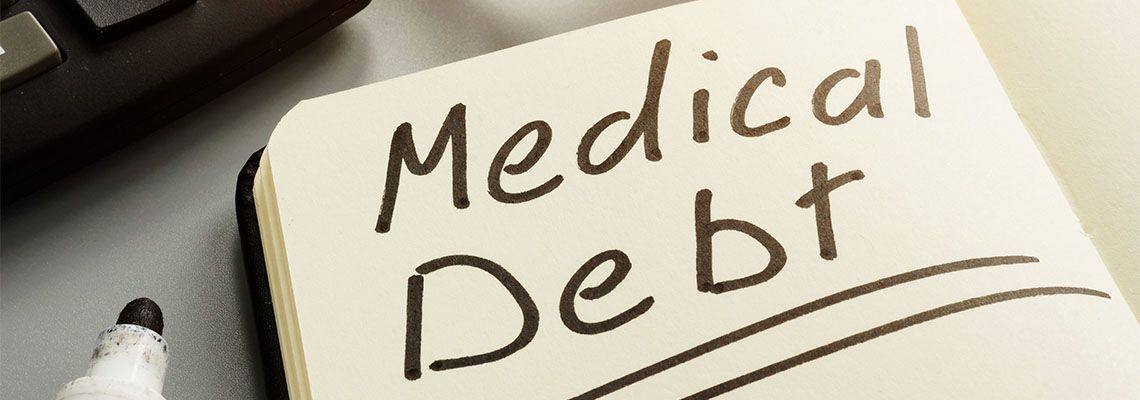
Medical Debt and Bankruptcy
Dealing with medical debt can be overwhelming. It's a burden that many Americans face, and it's important to know you're not alone. At EH Law Group, we're here to guide you through your options, including filing for bankruptcy.
We believe that everyone deserves a fresh start, especially when it comes to overwhelming medical debt. Our dedicated team, led by experienced attorneys Eddy Hsu, Grace Ho, and Tina Phan, is here for you every step of the way. If you're ready to take control of your finances, contact us at our office in San Mateo, California, today, and schedule a free consultation.
Will Bankruptcy Discharge Medical Debt?
Yes, declaring bankruptcy can provide relief from overwhelming medical debt. Astonishingly, research studies have revealed that a staggering 66.5% of bankruptcies in America are directly linked to medical expenses, establishing medical debt as the primary cause of financial insolvency in the nation. This phenomenon may be attributed to the exorbitant costs of healthcare and the loss of income due to time away from work.
Does Medical Debt Affect My Credit Score?
Unfortunately, yes. When medical bills go unpaid, they can be reported as delinquent accounts on your credit report. This, in turn, can have a negative impact on your credit score, making it more challenging to secure credit in the future. It's crucial to address unpaid medical bills promptly to avoid potential long-term consequences and maintain a healthy credit profile. One avenue for reclaiming control of your finances is to file for bankruptcy.
Bankruptcy Chapters That Help With Medical Debt
When it comes to bankruptcy, there are two chapters that can assist with medical debt: Chapter 7 and Chapter 13.
Chapter 7
Chapter 7 bankruptcy is a liquidation bankruptcy that can discharge unsecured debts, including medical bills. To qualify, you'll need to pass the means test, which compares your income to the median income in your state. If you meet the requirements, Chapter 7 can provide a fresh start by eliminating medical debt.
Chapter 13
On the other hand, Chapter 13 bankruptcy is a reorganization bankruptcy. It allows you to create a repayment plan to catch up on past-due debts, including medical bills. This chapter is suitable if you have a regular income and can afford to make monthly payments. Chapter 13 helps you manage your medical debt while keeping your assets.
Remember, filing for bankruptcy doesn't mean failure. It's simply a tool for a better financial future. So, if you're facing overwhelming medical debt, don't hesitate to reach out to us. We're here to help.
Pros & Cons of Filing for Medical Debt Bankruptcy
Like most major decisions in life, filing for medical debt bankruptcy comes with its fair share of benefits and disadvantages.
Pros:
Discharge of medical debt: Bankruptcy can reduce or even eliminate your medical debt.
Protection from creditors: Once you file for bankruptcy, an automatic stay prevents creditors from taking collection actions against you.
Opportunity for a fresh start: Bankruptcy can give you a chance to rebuild your financial life anew.
Cons:
Impact on credit score: Filing for bankruptcy will negatively impact your credit score and can linger on your credit report for up to 10 years.
Potential loss of assets: Depending on the bankruptcy chapter you file, you may have to liquidate certain assets to repay creditors.
Difficulty obtaining credit: After filing, it may be challenging to obtain credit, and if you do, it might come with higher interest rates.
Alternatives to Bankruptcy for Medical Debt
While bankruptcy can provide relief from medical debt, it's not always the best option for everyone. Some alternatives to filing for bankruptcy include:
Negotiating with healthcare providers: You may be able to negotiate a lower bill or payment plan directly with your healthcare provider.
Applying for financial assistance: Many hospitals and medical facilities offer financial assistance programs for low-income individuals.
Seeking credit counseling: A credit counselor can help you create a budget and negotiate with creditors on your behalf.
Settling the debt: You may be able to settle your medical debt for less than the full amount owed by negotiating a lump-sum payment.
At EH Law Group, we want to help you find your ideal path forward. If you're struggling with medical debt, our team of experienced attorneys can guide you in exploring all your options and making an informed decision. Contact us today to schedule a free consultation.
What to Ask Yourself Before Filling for Medical Bankruptcy
Before you decide to file for medical bankruptcy, consider these questions:
Is my medical debt overwhelming and unmanageable?
Have I explored other options, like negotiating with healthcare providers or seeking financial assistance programs?
Do I qualify for Chapter 7 or Chapter 13 bankruptcy?
Am I ready to accept the potential consequences of filing for bankruptcy, such as the impact on my credit score?
Have I consulted with a bankruptcy attorney to understand the process and explore alternatives?
It's important to remember that filing for bankruptcy is a significant step with long-lasting implications, thus careful evaluation is essential. Know that our bankruptcy attorneys are here to help you move forward with your decision, providing guidance and support every step of the way.
Legal Guidance When You Need It Most
If you're contemplating filing for medical debt bankruptcy, it's crucial to seek legal guidance. At EH Law Group, we have over 30 years of combined experience. We'll assess your situation, explain your options, and guide you through the bankruptcy process. We're here to protect your rights and help you make informed decisions about your financial future.
Our law firm is based in San Mateo, California, and serves clients throughout the surrounding area including San Francisco, Santa Clara County, Oakland, Daly City, and South San Fransisco.
